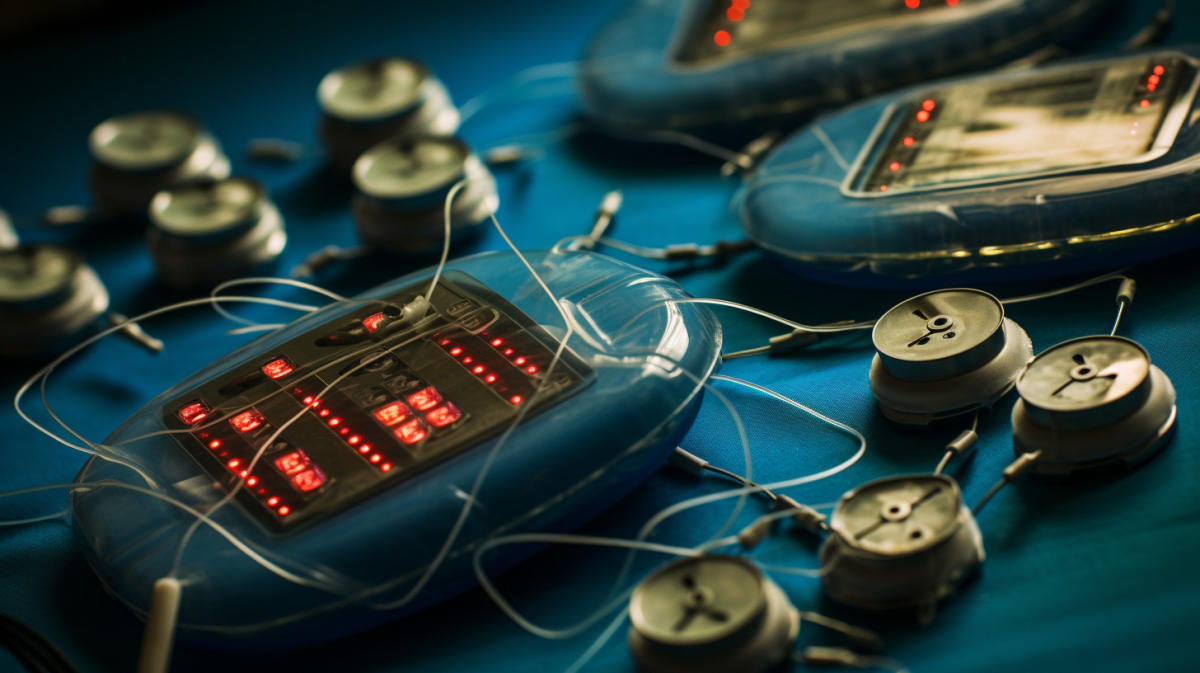



The future of healthcare technology is rapidly evolving, with advancements in non-invasive hemodynamic monitoring systems, medication compliance monitoring devices, compartment syndrome monitoring devices, and global body temperature monitoring devices leading the way. According to a comprehensive report by Coherent Market Insights, the non-invasive hemodynamic monitoring system market is expected to experience unprecedented growth by 2030. This report provides valuable insights into the market, including growth factors, trends, opportunities, and the competitive landscape. It also predicts the growth and demand forecast for several other markets, such as predictive analytics, ambient intelligence, X-ray detectable gauze sponges, orthopedic bone cement and casting materials, and bladder cancer therapeutics [0848c9a9].
In addition to non-invasive hemodynamic monitoring systems and medication compliance monitoring devices, the compartment syndrome monitoring devices market is also projected to grow significantly. The global market was valued at US$ 203.7 million in 2023 and is projected to reach US$ 362.9 million by 2030, growing at a CAGR of 8.6% during the forecast period [cfa7081a]. The rising cases of compartment syndrome, particularly among athletes and individuals involved in high-impact activities, is driving the demand for compartment syndrome monitoring devices. Technological advancements in these devices, such as portability, accuracy, and ease of use, as well as the integration of wireless connectivity and data analytics capabilities, are further enhancing their efficiency and effectiveness. The market is highly competitive, with key players including C2DX, Inc., MY01, Inc., RAUMEDIC, Becton, Dickinson and Company, Potrero Medical, and Perimed AB. The market is dominated by intra-compartmental pressure monitoring systems, and acute compartment syndrome is the leading indication. Hospitals are the primary end-users, although ambulatory centers and other healthcare facilities are also expected to grow. North America holds a dominant position in the market due to its well-established healthcare infrastructure and higher prevalence of compartment syndrome [cfa7081a].
These advancements in healthcare technology are driven by various trends, including the adoption of AI technologies, the shift towards patient-centric care, and the entry of new companies into the connected care market [fd0f8528]. With the integration of technology into healthcare, the industry is moving towards a more personalized and efficient approach to patient care. This not only improves patient outcomes but also enhances the overall healthcare experience.
The future of healthcare technology is bright, with non-invasive hemodynamic monitoring systems, medication compliance monitoring devices, compartment syndrome monitoring devices, and global body temperature monitoring devices paving the way for innovative solutions in patient care. As technology continues to advance, we can expect to see even more groundbreaking developments that will revolutionize the healthcare industry [0848c9a9] [fd0f8528] [cfa7081a].
Global body temperature monitoring devices are wearable gadgets that allow individuals to continuously track their body temperature in real-time. These devices provide a convenient and non-invasive way to monitor body temperature, eliminating the need for frequent visits to healthcare facilities. They enable early detection of abnormalities in body temperature, which can be indicative of various health conditions. By continuously monitoring temperature trends, healthcare providers can identify potential health issues and intervene promptly, preventing further deterioration of a patient’s condition. These devices are designed to provide accurate temperature readings when properly calibrated and worn correctly. They can be comfortably worn during various activities, including exercise, providing continuous temperature monitoring. Global body temperature monitoring devices are revolutionizing patient care by enabling remote temperature monitoring and early detection of health issues. They are invaluable tools in ensuring timely and effective healthcare delivery, particularly in the current era of social distancing and limited physical contact [d340ec94].
According to a recent article by Yahoo Finance, the medical device industry in the US is experiencing significant growth. The article provides a list of the 25 most valuable medical device companies in the US based on their market capitalization. These companies include NuVasive, Haemonetics Corporation, Masimo Corporation, Penumbra, Teleflex Incorporated, Insulet Corporation, Varian Medical Systems, Hologic, The Cooper Companies, Align Technology, Zimmer Biomet Holdings, ResMed Inc., West Pharmaceutical Services, DexCom Inc., IDEXX Laboratories, Edwards Lifesciences Corporation, Becton, Dickinson and Company, Boston Scientific Corporation, Medtronic plc, and Stryker Corporation. The article also discusses emerging trends and projections in the medical device industry, such as the expected growth of the US medical devices market and the global medical technology sector. It highlights advancements and expansion in non-invasive imaging technologies like MRI and ultrasound machines. The article concludes with information about the methodology used to rank the companies and their focus areas and future trends [5faa9cdb].
Source: [0848c9a9] [cfa7081a] [fd0f8528] [d340ec94] [5faa9cdb]